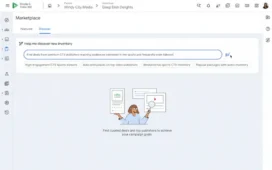Look, I realize that this AI usage overview from Microsoft is designed to alleviate concerns among government departments, which is a key revenue stream for Microsoft. But in amongst its practical notes as to how and why AI will be valuable to government agencies, and indeed, any business, there are also some interesting points of note as to what AI is, and its limitations.
The general logic here is sound, that AI is not a singular solution, and that it will still require human oversight to truly maximize the value of these tools. Which anyone who’s used AI systems will be aware of, but it is worth highlighting amid the broader hype, and fear, around AI changing work as we know it.
But what I find most interesting is notes like “AI is just math”. That’s correct, the current slate of AI tools is actually not what you would define as artificial “intelligence” at all, because there’s no internal “thought” process at play, it’s just machine calculations, taking this data point and that data point, then pushing out the most likely result.
They’re much better at doing this than previous systems, and the outputs can be human-like. But these systems are not “thinking”, they’re not taking into account the depth of what you’re asking, and giving you a nuanced response. It’s just math, as Microsoft notes, and that math is relative to the data inputs that any given system has access to.
That’s contextually important in understanding how these tools work, as are the notes here about “grounding” and training AI models on specific uses.
Essentially, AI tools can be valuable, but the hype around them may, at times, be overselling their capacity to affect your work.
That’s one element of this overview, but the other notes are also worth noting, both from a government and general business perspective.
















